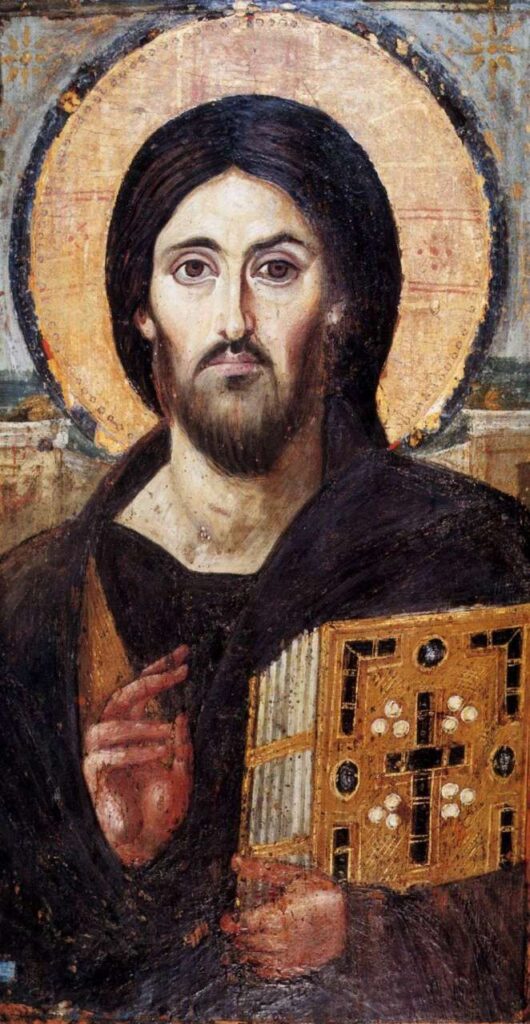In the name of the Father, and of the Son, and of the Holy Spirit, one God, Amen.
I go to the hospital and wait to see a doctor, I am sat and at ease. And I see a man being rushed in with a broken leg, and I thank God I am not ill like he is. Next I see someone come in having cut himself, someone who has trapped a finger in a door, someone with a fever, another vomiting, and I thank God I am not ill like they are. But when I go in the doctor tells me I am seriously ill, I must be admitted, I must endure painful and uncomfortable procedures to make me well. And one by one, out of the window of my ward, I watch those whom I saw entering the hospital, having been given the appropriate treatment, able to go home.
We have arrived, dear brothers and sisters in Christ, and have now opened the Triodion, the book of the divine services we will say from now through the Great Fast and into Great and Holy Week. And as we are beginning our preparations, as we start on our journey towards Pascha and from there onwards to Pentecost, as we start to make ourselves ready for the Fast quickly approaching, the Church sets before you and she sets before me the Parable of the Publican and the Pharisee. And we think this is easy to understand—“be like the Publican, the Tax-collector, and not like the Pharisee,” I tell myself, and then enjoy a week without fasting and move seven days closer to Pascha. The verse immediately before today’s reading, however, paints a rather different picture.

He spoke this parable to some who trusted in themselves that they were righteous, and despised others.
Luke 18:9
And I read this verse and see the Church is pointing it at me: I am being shown that I am the one who trusts in myself that I am righteous, I despise others, and the Church is directing this parable at me. I am sat in the waiting area of the hospital, not one which heals bodies but one which heals souls, and I am thankful that I am not like others who are entering. And in my condemnation of them in my heart—sinners, evil-doers and demon possessed—I add to my infirmity and worsen my disease.
My dear brothers and sisters in Christ, let us not be the Pharisee: let us reverse the parable and condemn our own sins and not the sins of others. Let us take responsibility for what we have done and cry out to the Lord, “God, be merciful to me a sinner!” And in that moment the Lord will have compassion upon us and justify us, “for everyone who exalts himself will be humbled, but he who humbles himself will be exalted.”
That we may be found justified to meet the Resurrection of our Lord with compunction and joy and worship our Saviour Jesus Christ, together with his unoriginate Father and the All-holy, Good and Life-giving Spirit. Amen.
Timothy, my son, you have observed my teaching, my conduct, my aim in life, my faith, my patience, my love, my steadfastness, my persecutions, my sufferings, what befell me at Antioch, at lconion, and at Lystra, what persecutions I endured; yet from them all the Lord rescued me. Indeed all who desire to live a godly life in Christ Jesus will be persecuted, while evil men and impostors will go on from bad to worse, deceivers and deceived. But as for you, continue in what you have learned and have firmly believed, knowing from whom you learned it and how from childhood you have been acquainted with the sacred writings which are able to instruct you for salvation through faith in Christ Jesus.
— Second Timothy 3:10–15
The Lord said this parable, “Two men went up into the temple to pray, one a Pharisee and the other a tax collector. The Pharisee stood and prayed thus with himself, ‘God, I thank you that I am not like other men, extortioners, unjust, adulterers, or even like this tax collector. I fast twice a week, I give tithes of all that I get.’ But the tax collector, standing far off, would not even lift up his eyes to heaven, but beat his breast, saying, ‘God, be merciful to me a sinner!’ I tell you, this man went down to his house justified rather than the other; for everyone who exalts himself will be humbled, but he who humbles himself will be exalted.”
— Luke 18:10–14
